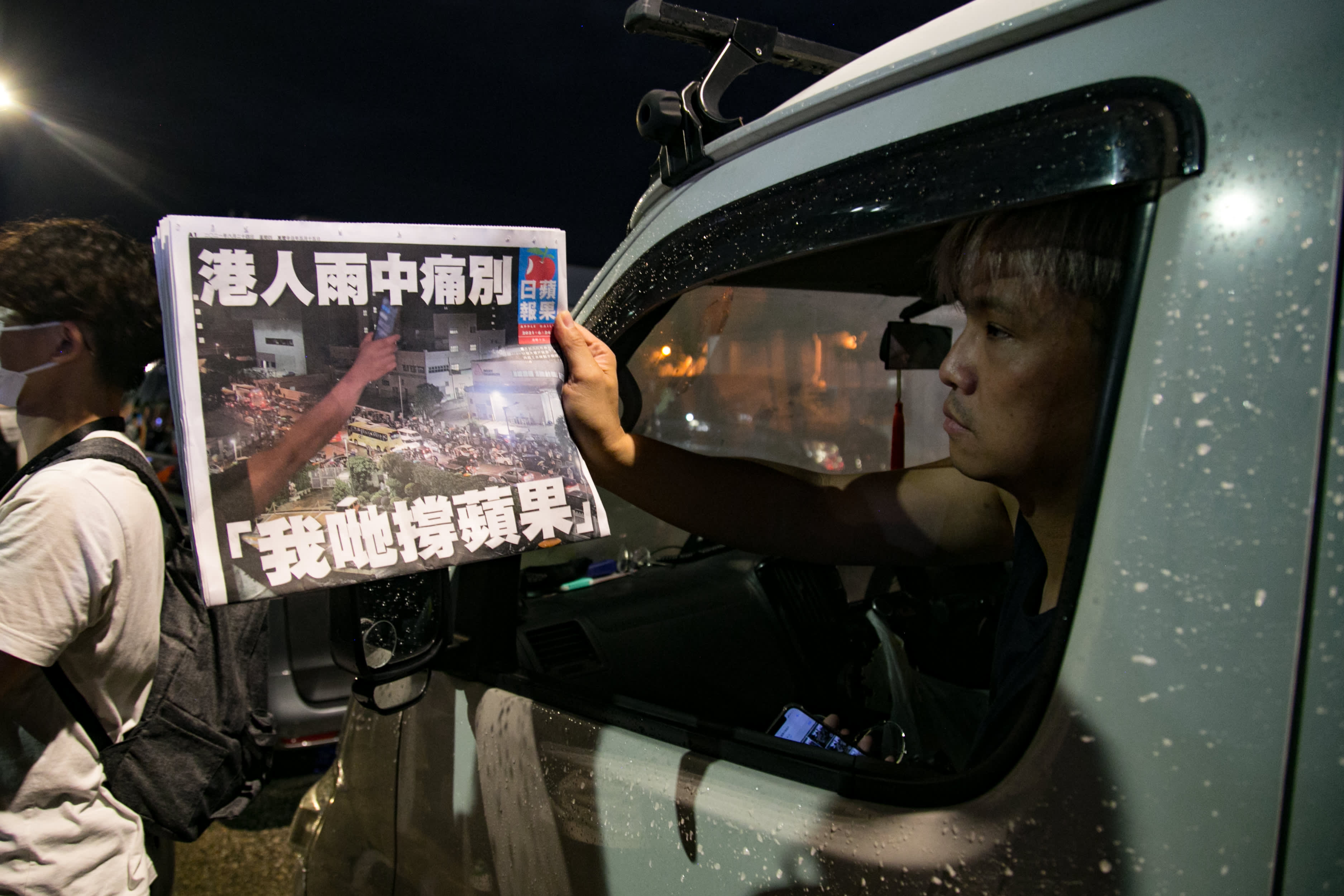
A man holds the last print edition of Hong Kong pro-democracy newspaper Apple Daily from his car.
Dominic Chiu | SOPA Images | LightRocket via Getty Images
When asked about Apple Daily's alleged offenses, Hong Kong's Secretary for Security John Lee said last week that "we are talking about a conspiracy in which the suspects tried to make use of journalistic work to collude with a foreign country or external elements to impose sanction or take hostile activities against Hong Kong" and China.
Apple Daily had come under increasing pressure by Hong Kong authorities. Its owner, media tycoon Jimmy Lai, is a strong critic of the Chinese central government. He is now serving jail time after being arrested under the security law.
The national security law came into force last year. Beijing said the law is aimed at prohibiting secession, subversion of state power, terrorism activities and foreign interference.
Chan, who is also deputy assignment editor at online news site The Stand News, said it's concerning that the law's red lines are not clear. That means independent journalists "have to bear some risks" in order to do their job, he added.
Hong Kong authorities' use of the national security law has been criticized by some including the governments of the U.S. and U.K.
Following Apple Daily's closure, British Foreign Secretary Dominic Raab said in a statement that "it is crystal clear that the powers under the National Security Law are being used as a tool to curtail freedoms and punish dissent — rather than keep public order."
Meanwhile, a European Union spokesperson said Apple Daily's closing "seriously undermines media freedom and pluralism" in Hong Kong.
Read More

Post a Comment